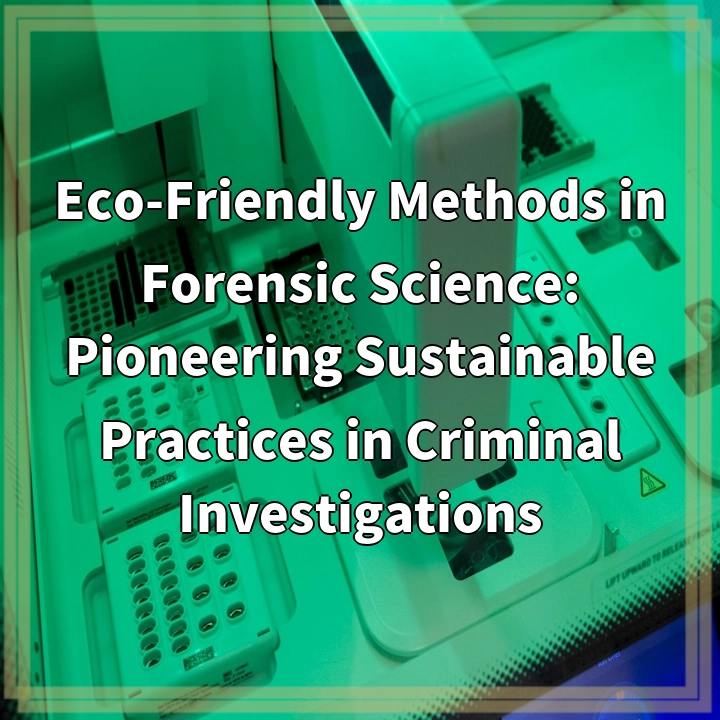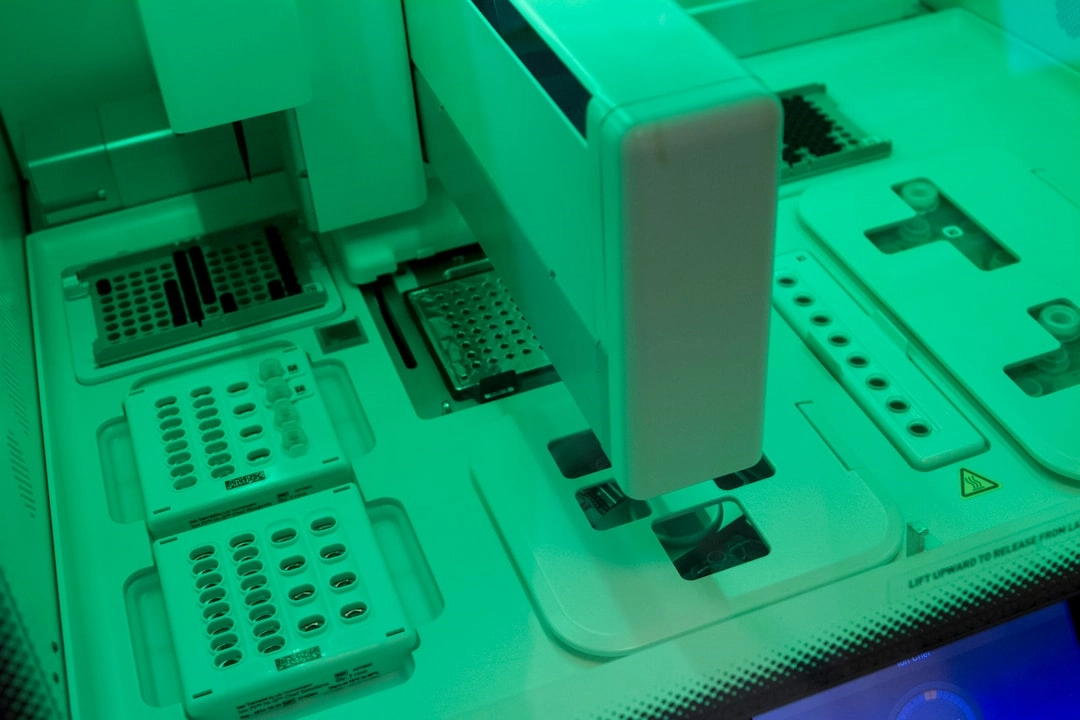
What it is:
Eco-friendly methods in forensic science refer to sustainable practices employed in criminal investigations that minimize environmental impact. These techniques aim to reduce waste, utilize non-toxic materials, and incorporate renewable resources throughout the forensic process, from evidence collection to analysis and reporting. By integrating values of sustainability into law enforcement and forensic science, practitioners seek to not only solve crimes effectively but also protect the environment.
Core Components of Eco-Friendly Forensic Science
Strategies used in eco-friendly forensic practices include the use of biodegradable materials for evidence collection, green chemistry methods that replace harmful chemicals with safer alternatives, and energy-efficient technology in laboratories. Furthermore, methods such as soil analysis through non-invasive techniques and the use of plant-based inks in documentation contribute to reducing the carbon footprint of forensic activities.
Real-world problems
Despite the advantages of eco-friendly methods in forensic science, several challenges hinder widespread adoption. One significant issue is the existing legal frameworks that may not accommodate innovative practices, as traditional forensic methods have long been entrenched in criminal justice systems. This can create resistance from law enforcement agencies and legal professionals who are accustomed to conventional practices.
Budget Constraints
Another real-world problem is budget constraints faced by many forensic laboratories. Integrating eco-friendly practices often requires upfront investment in new technologies and materials, which can deter budget-conscious agencies, especially in economically challenged regions. Balancing crime-solving efficiency with sustainability can be a difficult equation for many organizations.
Training and Awareness
Additionally, a lack of training and awareness surrounding eco-friendly forensic techniques can pose significant barriers. Many forensic professionals may not be familiar with sustainable practices or may not see them as a priority within the fast-paced environment of criminal investigations.
Environmental Regulations
Moreover, stringent environmental regulations can also limit the implementation of new sustainable practices. Forensic laboratories must navigate complex compliance requirements that can hinder innovation, leading to a reluctance to adopt green methods.
Future Implications
As discussions around climate change and environmental responsibility gain traction, the push for eco-friendly methods in forensic science may grow stronger. Continued research, collaboration between forensic professionals and environmental scientists, and advocacy for policy changes will be critical for fostering a more sustainable forensic landscape.

Solutions for Eco-Friendly Methods in Forensic Science
The transition to eco-friendly methods in forensic science can be achieved through several strategic solutions that address the challenges faced by the field. These solutions focus on fostering innovation, increasing awareness, and improving collaboration among stakeholders.
Legal and Policy Advocacy
To overcome existing legal barriers, advocacy for policy changes that support sustainable practices in forensic science is essential. Engaging with lawmakers to create frameworks that encourage eco-friendly methods can help align the legal system with modern sustainability goals.
Budget Allocation and Funding
Addressing budget constraints involves reallocating existing resources and seeking additional funding specifically for sustainable forensic practices. Grants and partnerships with environmental organizations can provide the necessary financial support for laboratories to upgrade their technologies to eco-friendly alternatives.
Training and Education Programs
Implementing targeted training and education programs for forensic professionals can significantly boost awareness and adoption of eco-friendly methods. By incorporating sustainability principles into forensic training curricula, future practitioners can become advocates for green practices in their careers.
Research and Development Collaboration
Encouraging collaboration between forensic scientists and environmental researchers can foster the development of innovative sustainable technologies and methods. Joint initiatives can lead to knowledge sharing and the exploration of new materials and processes that benefit both fields.
Community Engagement and Awareness
Finally, engaging with the community and raising public awareness about the importance of eco-friendly methods in forensic science can build support for these initiatives. Informing the public about the environmental impact of forensic practices can lead to greater demand for sustainability in crime-solving efforts.















